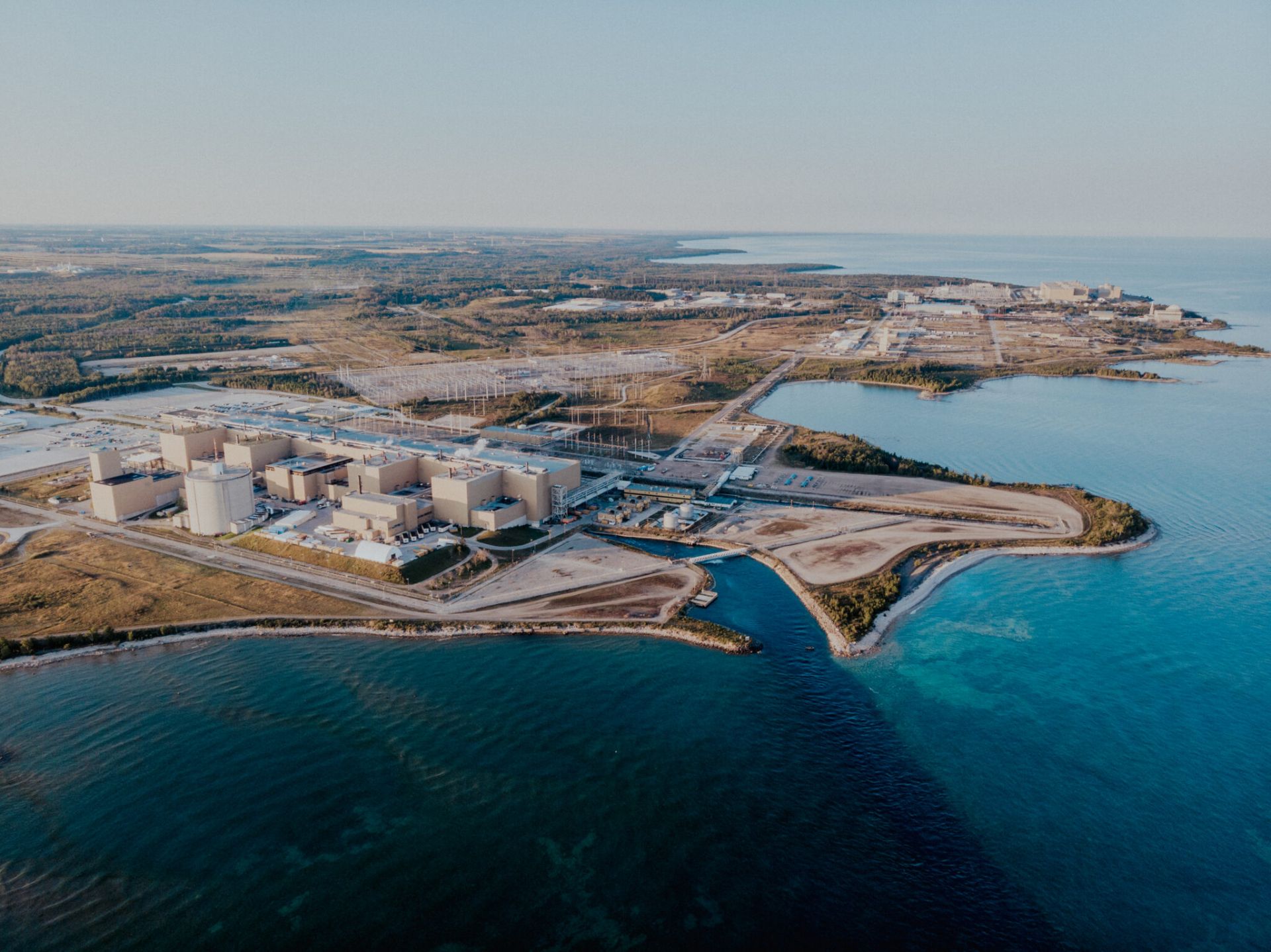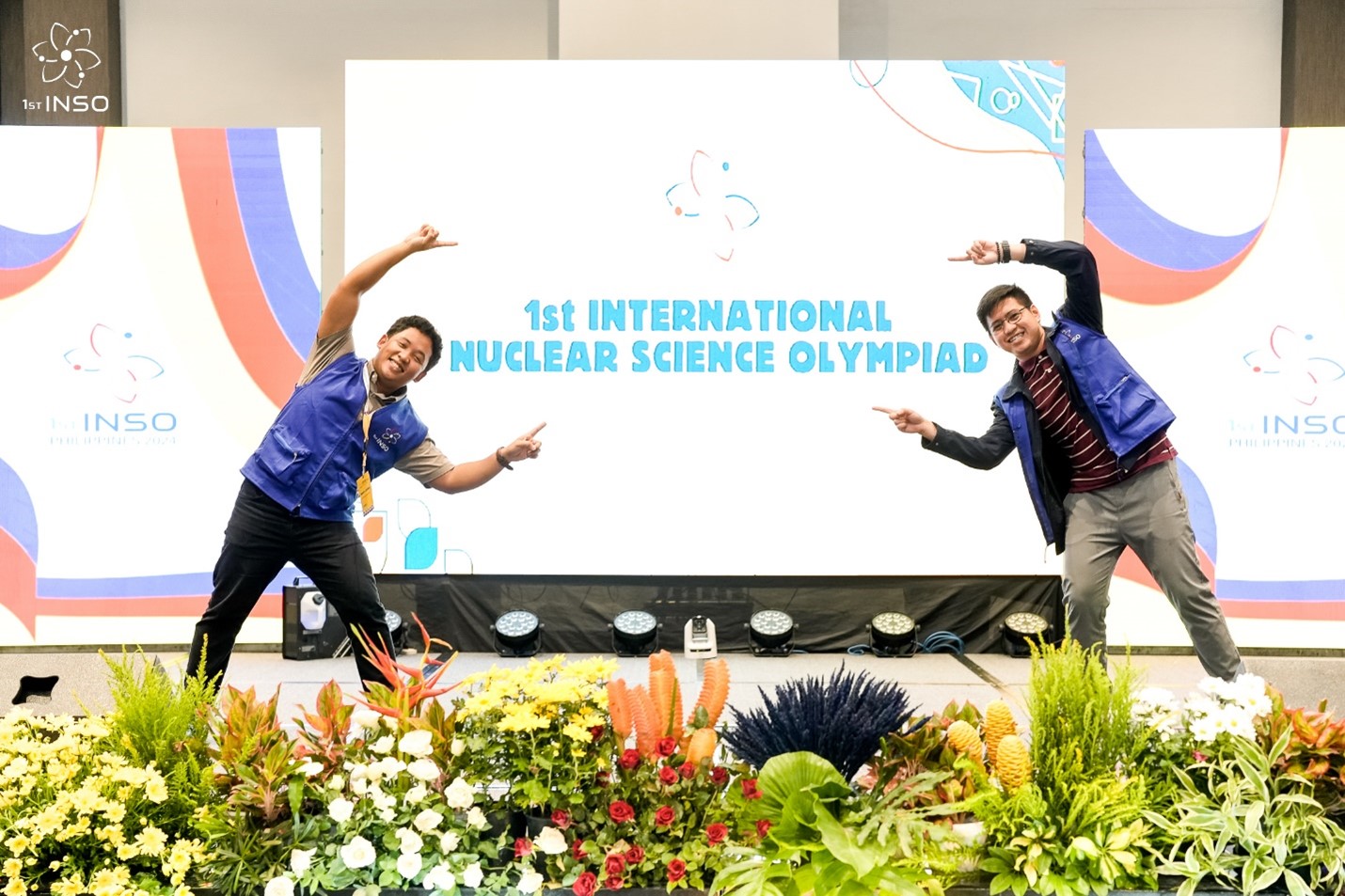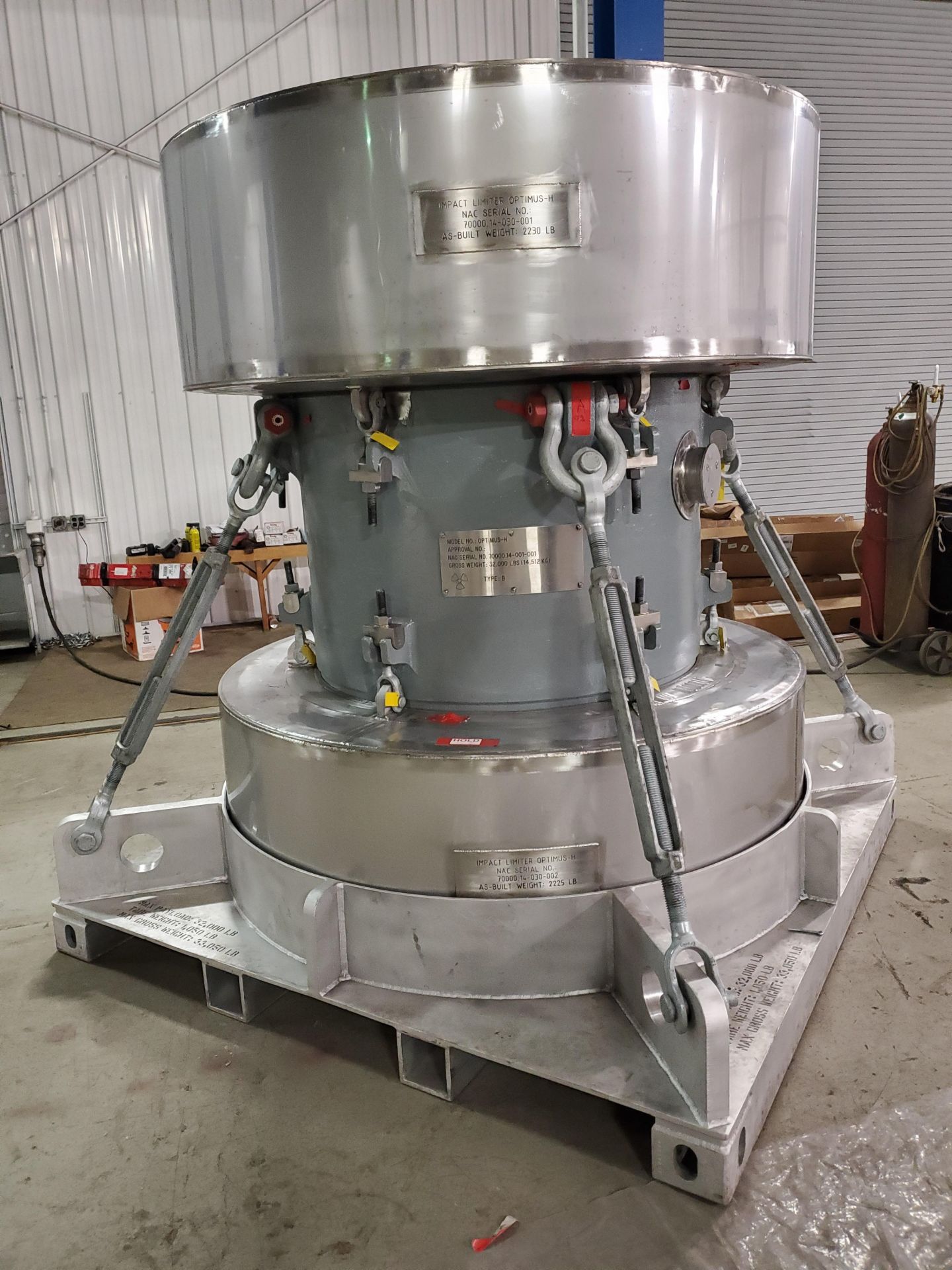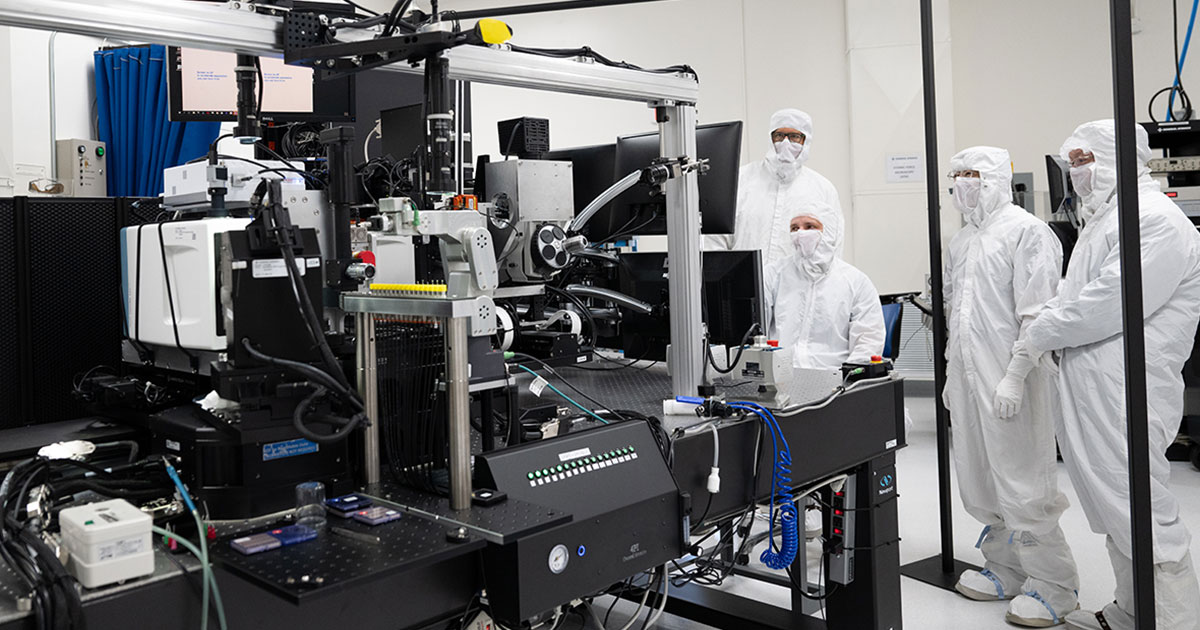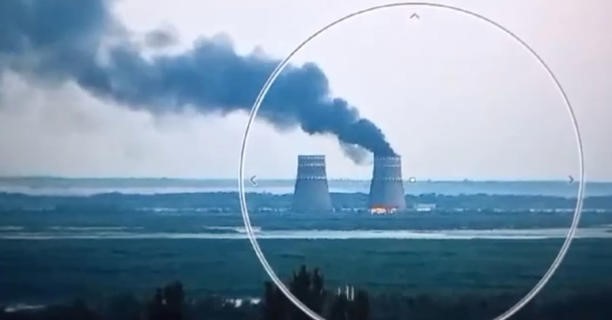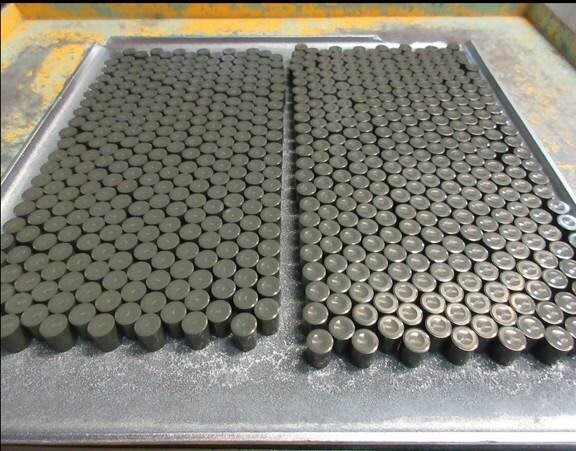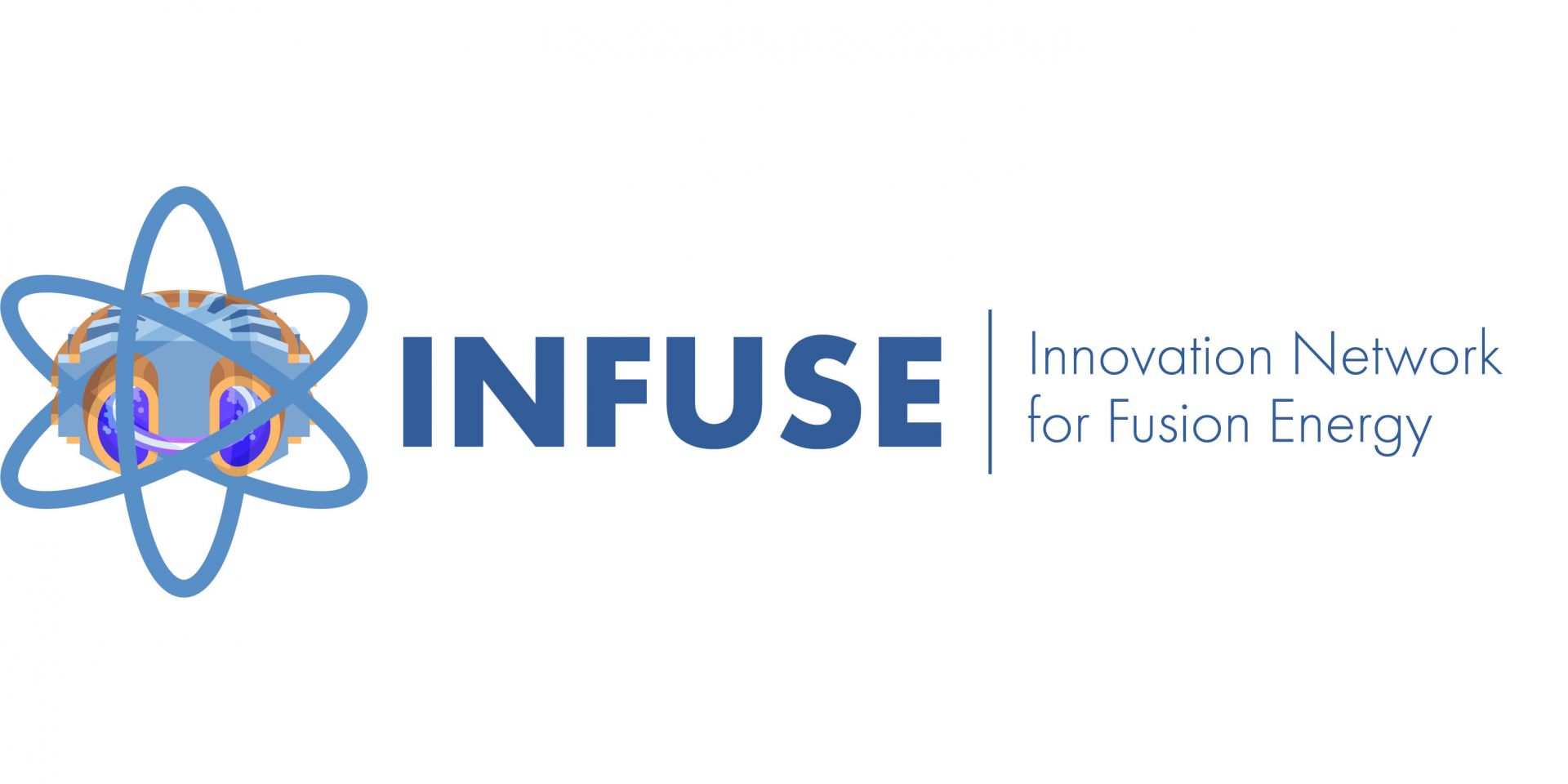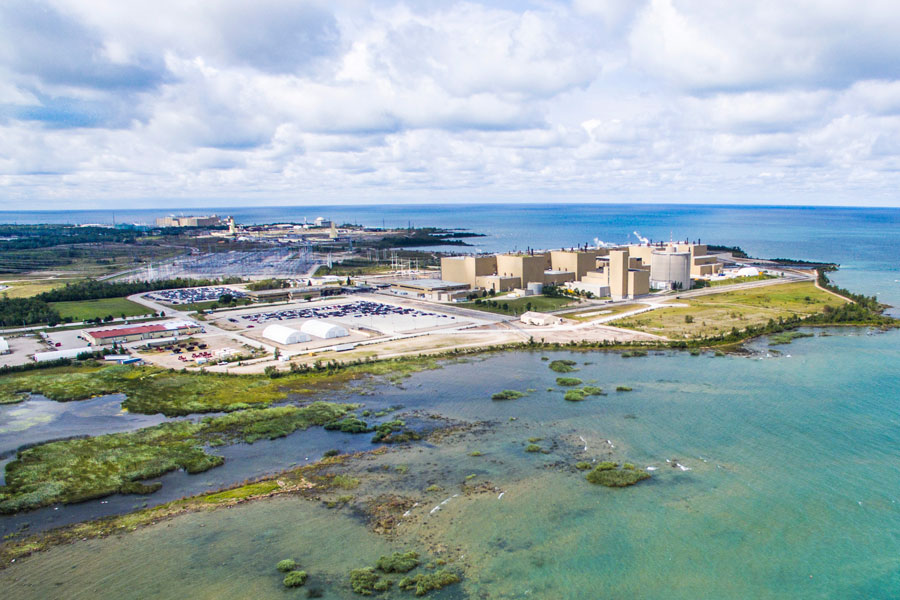Matthew Jasica is a member of a small team conducting large-scale experimental testing of reactors and their components at the NSTF. (Photo: Argonne)
A facility at Argonne National Laboratory has been simulating nuclear reactor cooling systems under a wide range of conditions since the 1980s. Its latest task, described by Argonne in an August 13 news release, is testing the performance of passive safety systems for new reactor designs.
Designed as a half-scale model of a real reactor system, Argonne’s Natural Convection Shutdown Heat Removal Test Facility (NSTF) is used for large-scale experimental testing of the performance of passive safety systems, which are designed to remove decay heat using natural forces including gravity and heat convection. Those tests yield benchmarking data qualified to the level of National Quality Assurance-1 (NQA-1) that is shared with vendors and regulators to validate computational models and guide licensing of new reactors and components.
Peach Bottom Atomic Power Station, Unit 1. (Photo: NRC)
The first high-temperature, gas-cooled reactor ever built in the United States was Unit 1 at the Peach Bottom Atomic Power Station. This demonstration plant, located on the Susquehanna River approximately 80 miles southwest of Philadelphia, Pa., was tasked with validating HTGR design codes. It produced over 1.2 million megawatt-hours of electricity over 1,349 equivalent full-power days (EFPDs), which was distributed by the Philadelphia Electric Company.
The Bruce site currently hosts eight CANDU reactors. (Photo: Bruce Power)
As Bruce Power continues predevelopment work, public input is being sought on the potential Bruce C nuclear power expansion project in Ontario.
Bruce Power recently submitted its initial project description to the Impact Assessment Agency of Canada for an expansion that would add up to 4,800 MWe. Earlier this year, the Canadian government announced up to C$50 million ($36.8 million) in funding for the Bruce C project, which would be Canada’s first major expansion of a large nuclear plant in decades.
Students celebrate the first International Nuclear Science Olympiad. (Photo: INSO)
Fifty-five high schoolers representing 14 Asian countries participated in an inaugural nuclear science competition earlier this month in the Philippines.
The event was held in the run-up to the United Nations’ International Youth Day, which is celebrated worldwide on August 12 to recognize and encourage the potential of young people as active partners in the global society. The nuclear field presents many opportunities for the next generation of scientists and engineers.
Members of the Metrology Research and Development team working with the 4Pi system in a clean room at GA headquarters. (Photo: General Atomics)
The National Ignition Facility (NIF) at Lawrence Livermore National Laboratory has achieved fusion ignition at least five times, each time by directing its 192 high-powered lasers on a capsule containing a tiny, 2-millimeter target filled with hydrogen fuel. Not every shot achieves ignition, however. Tiny imperfections in the targets can mean fizzle, not fusion. But each of the targets used in successful experiments to date have something in common: they were characterized and selected by the 4Pi Integrated Metrology System, a new measurement system developed by General Atomics. Now, the team behind that system is being recognized.
GA announced last week that its Metrology Research and Development team had won the 2024 "Team of the Year" R&D 100 Professional Award from R&D World. The magazine that each year announces the R&D 100 awards that have been dubbed the “Oscars of Innovation” also selects just one “Team of the Year” and announces that award together with four other professional awards.
Screenshot from a video released by Ukrainian president Volodymyr Zelenskyy shows a fire that broke out at the Zaporizhzhia nuclear power plant on August 11, 2024.
Thick, black smoke pouring from one of the cooling towers at Ukraine’s Zaporizhzhia nuclear power plant over the weekend raised alarm about safety at the facility as the military conflict with Russia continues.
On-site staff from the International Atomic Energy Agency witnessed the smoke and reported hearing multiple explosions at Zaporizhzhia, which is the largest nuclear plant in Europe and one of the largest worldwide.
Concept art of a Rolls-Royce SMR site. (Image: Rolls-Royce)
Engineering company Rolls-Royce is considering the sale of its small modular reactor subsidiary to inject new funding into the company’s overall business plans, the Sunday Telegraph first reported Aug. 3.
The company is looking to raise hundreds of millions, with a current valuation of £1.6 billion ($2 billion), as it sets its sights on being the first to deploy SMRs in the United Kingdom. Rolls-Royce recently cleared step two of the U.K.’s generic design assessment (GDA)—a competition launched in 2023 to bring SMRs on line in the 2030s.
Westinghouse ADOPT fuel pellets. (Photo: Westinghouse)
Westinghouse Electric Company announced Aug. 8 that it has completed the first pressing of ADOPT nuclear fuel pellets at the company’s Springfields Fuel Manufacturing Facility in the United Kingdom. The pellets, which can contain up to 8 percent uranium-235 by weight, are destined for irradiation testing in Southern Nuclear’s Vogtle-2 pressurized water reactor.
The Bruce Power nuclear power plant. (Photo: Bruce Power)
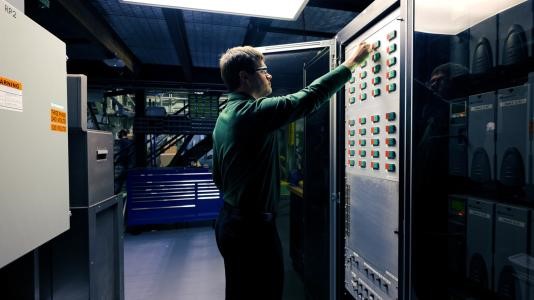

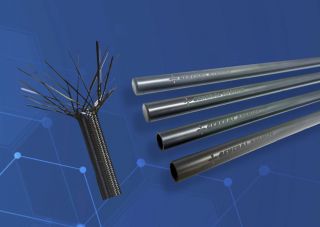
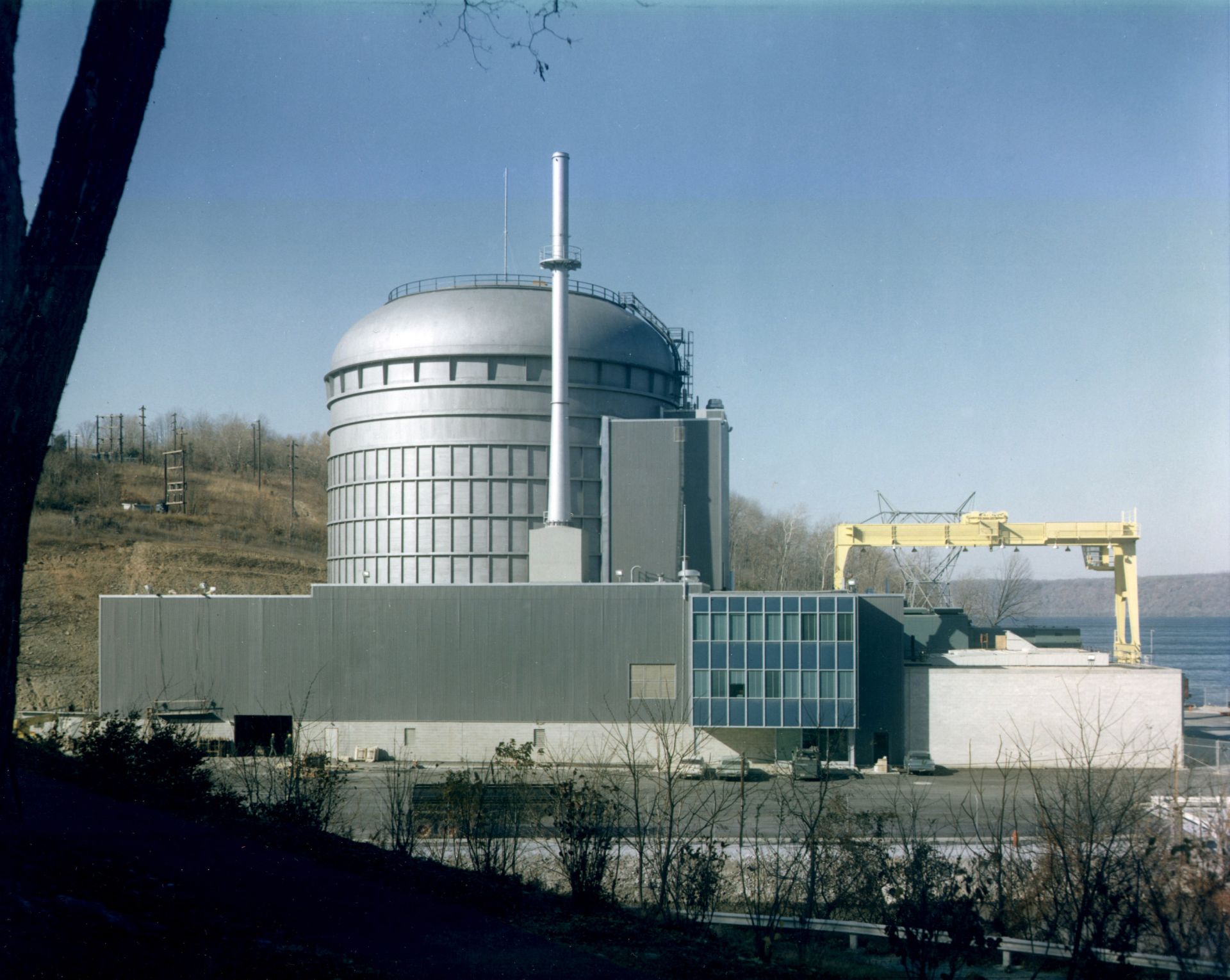
 QSA Global, a provider of radioisotope products, and Niowave, a Michigan-based producer of medical radioisotopes, announced that the companies will codevelop a scalable radium purification process using Niowave’s radium-226 processing technology to meet the demand for actinium-225, an alpha-emitter used in the treatment of cancer. According to the companies, the strategic partnership marks a significant advancement in the field of radiopharmaceutical technology, enhancing the supply chain for critical radioisotopes, including Ac-225.
QSA Global, a provider of radioisotope products, and Niowave, a Michigan-based producer of medical radioisotopes, announced that the companies will codevelop a scalable radium purification process using Niowave’s radium-226 processing technology to meet the demand for actinium-225, an alpha-emitter used in the treatment of cancer. According to the companies, the strategic partnership marks a significant advancement in the field of radiopharmaceutical technology, enhancing the supply chain for critical radioisotopes, including Ac-225.